Meet our PhD students
You can view project posters relating to some of our students' research on EPCC's Zenodo site:
https://zenodo.org/communities/epcc/records?q=&l=list&p=1&s=10&sort=newest

Jakub Adamski
Email Jakub
Supervisor: Dr Oliver Brown
Jakub Adamski is investigating high performance simulations of quantum computers.
I have a joint degree in computer science and physics, which is why I chose to take up quantum computing research as an opportunity to bridge the disciplines. It is exciting to be a part of such a revolutionary field, and to witness it redefine the limits of computation – just like the emergence of digital computers did half a century ago.
Classical simulations of quantum computing are an active area of research, offering an alternative to real quantum hardware, which tends to be expensive and unreliable. Furthermore, while a quantum processor outputs only single probabilistic bitstrings, an emulation can reveal all information about the underlying system without the need to sample from numerous runs. This is why simulations are crucial for the development of the field.
To model quantum circuits, two distinct representations are used. The statevector method is more common, as it updates the state sequentially and in-place. The alternative is to use tensor networks, which can process the circuit in any order, but at the expense of potential information loss. My research was at first centred around existing statevector simulators, but I am now gradually bringing in the tensor networks. Eventually, I intend to develop a brand-new library in C++, which takes advantage of high performance computing by distributing the tensors with MPI.
Outside the university work, I am an active person, enjoying running or hillwalking in the Scottish countryside. I am also an avid astronomy fan, keen on getting good photographs of the Milky Way, or aurora borealis on lucky days. When the weather inevitably worsens, I relax at home and play the keyboard, or get immersed in factory-building video games.
Follow Jakub's work
GitHub: github.com/jjacobx
LinkedIn: linkedin.com/in/kuba-adams
Personal website: jjacob.xyz
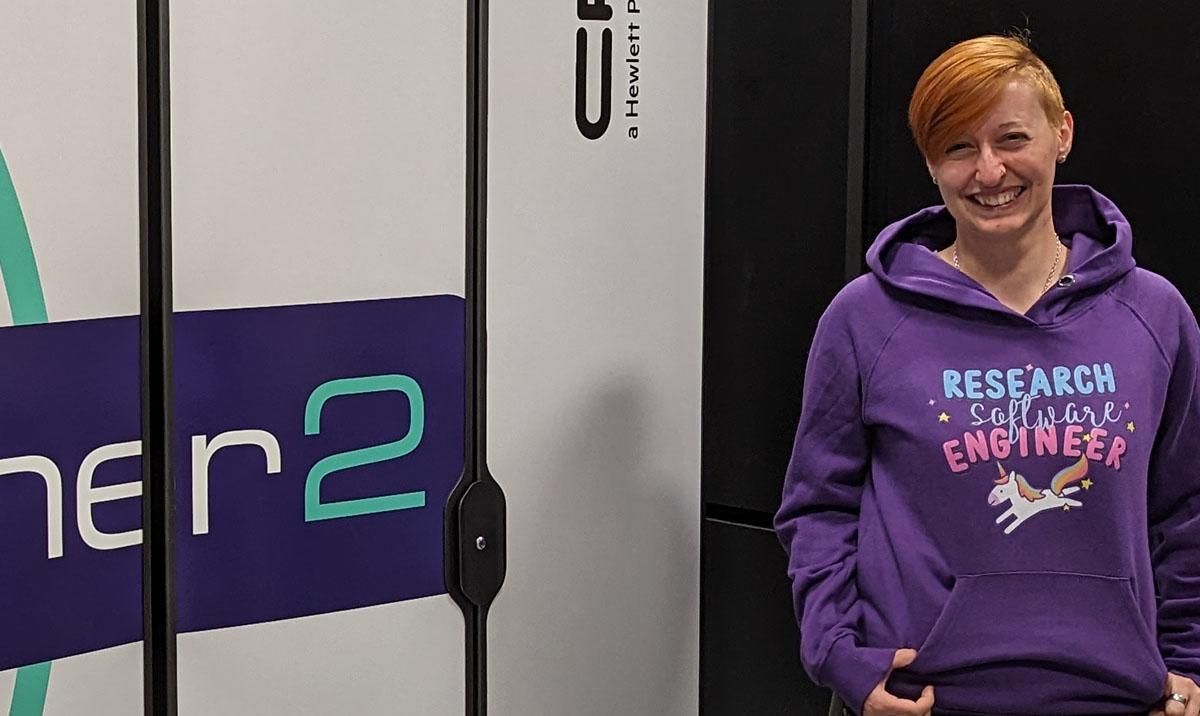
Felicity (Flic) Anderson
Felicity.Anderson@ed.ac.uk
Supervisors: Prof. Neil Chue Hong and Dr Julien Sindt
Flic is investigating real-world research software practices amongst academics who write code for their research.
By mining GitHub repository data for research software projects, I hope to build up a picture of how people interact with their codebases, what software practices are most common amongst their developers, and which of these can be shown to be most effective.
Initially I aim to do this by looking at whether people's development activities fall into groupings of similar practices - do research software developers have different 'personas' which can describe how they write and engage with their code?
This will be done by combining lots of different properties from their codebase data (such as code commits and engagement with features such as issue tickets or pull requests) and using clustering analysis to check whether we can describe specific 'types' of developer from the data.
Not all projects have the same goals, so are different skills and approaches needed? Or are some best practices commonly required across all types of projects? Some approaches may also be more effective than others, so gathering an understanding about what works could fine-tune software development approaches and allow researchers to create better software.
Ultimately being able to give an evidence-basis for what techniques researcher software developers are really using (and whether they work) will help research software projects identify which techniques would be most helpful when starting new projects. It will also help individual researchers prioritise which development skills would benefit them most for the types of projects they want to work on.
Follow Felicity's work
GitHub https://github.com/FlicAnderson
LinkedIn: https://www.linkedin.com/in/flicanderson
ORCID ID: https://orcid.org/0000-0001-8778-6779
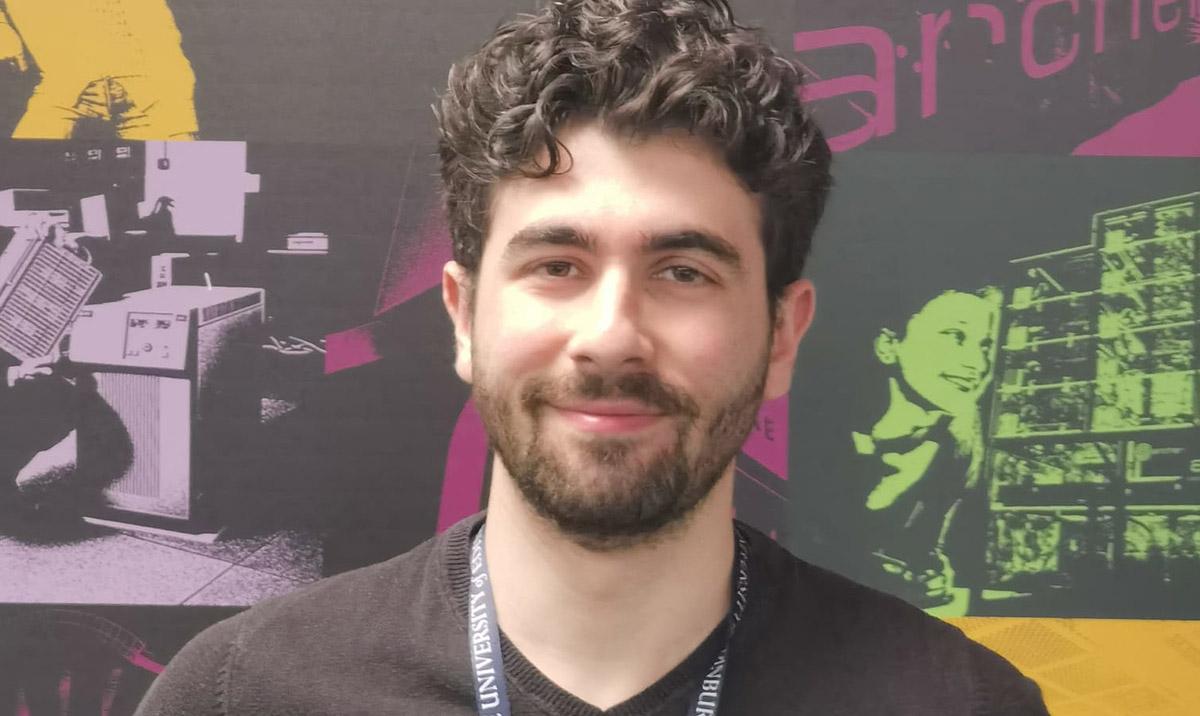
Gabriel Rodríguez Canal
gabriel.rodcanal@ed.ac.uk
Supervisor: Dr Nick Brown
Gabriel is investigating compilers for FPGAs.
My work revolves around enabling FPGAs in HPC systems, where the current tooling still needs significant user intervention to generate highly performant hardware. In particular my research focuses on two areas that are key to the adoption of FPGAs in high-end systems.
First, the task-based programming model, fundamental in HPC for the execution of scientific workloads on accelerators, is not fully supported on FPGAs. Swapping in and out running tasks on the device is a hardware-level process, where the actual configuration of the FPGA changes. This incurs a massive performance penalty that CPUs and GPUs do not suffer from, as this process happens at the software level. I have developed a solution that enables the advanced flow of partial reconfiguration and abstracts away all the low-level details from the user, fully enabling the task-based programming on FPGA.
Second, the hardware generation process from high-level source codes written in C/C++, known as high-level synthesis (HLS), presents important limitations: the choice of C/C++ as the frontend language forces the domain expert to port their codes to this language before getting any close to an FPGA, and codes written in this language do not suit the dataflow paradigm naturally, which is necessary to get performance out of an FPGA.
I have addressed the first issue with Fortran HLS, an LLVM-based tool around Flang that enables Fortran in the HLS ecosystem for AMD Xilinx FPGAs. It also provides a methodology to enable hardware generation from any other high-level language with an LLVM frontend leveraging its modular implementation. This point is proven through Stencil-HMLS, a tool developed in my PhD to accelerate stencils on FPGAs supported by a combination of MLIR, as the frontend, and the Fortran HLS backend. The results show around 100x improvement in runtime and energy efficiency with respect to the state-of-the-art, and prove it is possible to generate dataflow hardware from an imperative specification without user intervention.
As part of my PhD, I am involved with the EPSRC-funded xDSL project (https://xdsl.dev), where I have contributed the HLS dialect that is used in the Stencil-HMLS work, as well as support for the AIEs in the AMD Xilinx Versal architecture.
Finally, being a firm believer in knowledge transfer with other institutions, I undertook an industry placement at Hewlett-Packard Enterprise after the completion of the first year of my PhD, where I worked on Fortran HLS. Later this year I will be doing another internship at Pacific Northwest National Laboratory (PNNL) in the US, where I will be working on SODA-opt/Bambu HLS in collaboration with Politecnico di Milano.
Follow Gabriel's work
Fortran HLS GitLab: https://gitlab.com/cerl/fortran-hls/
GitHub: https://github.com/gabrielrodcanal
LinkedIn: https://www.linkedin.com/in/gabriel-rodriguez-canal-572604109/
ORCID ID: https://orcid.org/0009-0005-0511-3922
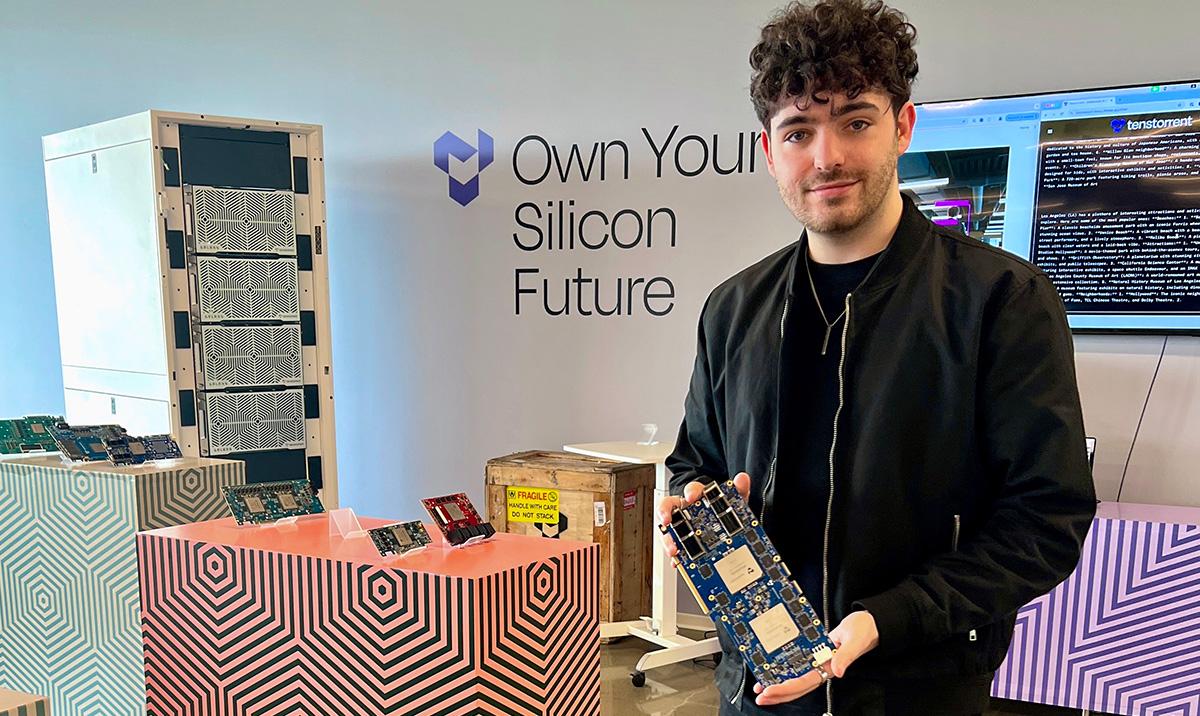
Jake Davies
Supervisor: Dr Nick Brown
Jake’s work focuses on targeting novel, RISC-V accelerators through state-of-the-art compiler technology.
RISC-V is an open-standard instruction set architecture, being widely adopted in custom processors. These processors can accelerate different workloads and may play a crucial role in the next generation of HPC systems. The work I’m undertaking aims to enable developers to program these accelerators, which may differ dramatically at the hardware level, using the languages and paradigms they are already comfortable with — as far as possible.
Tenstorrent is one vendor creating a series of machine learning accelerators with RISC-V cores. Its architectures consist of Tensix cores which are made up from many baby RISC-V cores, allowing them to both move data and perform compute in parallel. These cores are then arranged in a grid with a high-performance Network-on-Chip, allowing cores to pass data between each other without having to go through slow, main memory, making these architectures promising for traditionally memory-bound HPC codes. However, programming for this architecture is difficult.
Whilst each vendor may offer its own programming model, this requires developers to understand each architecture deeply and use this understanding to rewrite their programs for each platform. We propose that developers write their program using traditional HPC languages and allow the compiler to perform optimisations tailored for each architecture. This method will hopefully enable developers to achieve both high performance and portability across architectures.
We are implementing this technology through the xDSL framework, which is a Python implementation of LLVM’s Multi-Level Intermediate Representation (MLIR), allowing us to quickly implement and prototype our techniques.
Follow Jake's work
GitHub: https://github.com/jakedves
LinkedIn: https://www.linkedin.com/in/jakedves/
Website: https://www.jakedavies.dev
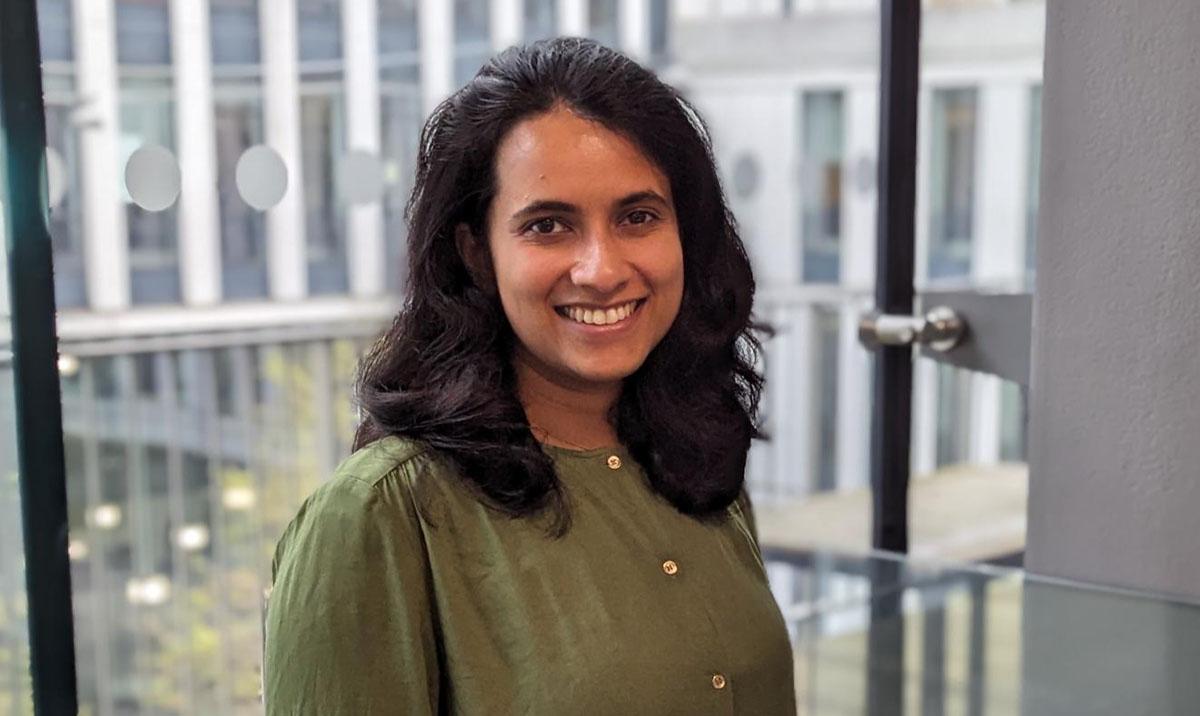
Ananya Gangopadhyay
a.gangop@ed.ac.uk
Supervisors: Prof. Michèle Weiland and Dr Paul Bartholomew
Ananya is working on improving the performance of the mesh generation phase in Computational Fluid Dynamics (CFD) workflows using existing performance optimisation techniques and novel machine learning approaches.
Mesh generation is a pre-processing step where the fluid domain is discretised into a mesh of cells prior to the principal solver phase. It can be comparable to the solver in terms of runtime, making it a major bottleneck that results in the inefficient utilisation of compute resources and loss of real-world time. Along with looking at standard code optimisation methods such as alternative parallelisation, improved load balancing and vectorisation, I am developing machine learning methods to achieve a significant improvement in performance while maintaining accuracy.
I first became acquainted with computer simulation modelling and numerical methods during a project in the final year of my BSc(Eng) in Electrical and Computer Engineering degree at the University of Cape Town, South Africa. I eventually built upon the project while pursuing an MSc in Computational Science. Working with the Molecular Dynamics (MD) simulation method, I learned how these computational tools act as the third pillar in scientific research, alongside theoretical and experimental analysis. However, I also understood that despite the incorporation of high-performance computing techniques to improve their performance, to meet high accuracy demands these tools can also be resource-hungry with long runtimes. As a result, they may not always provide an improvement in research turnaround times.
This understanding and experience is the basis of my research targets: to improve the accuracy, performance and time-to-solution of computational simulation and numerical analysis methods, making them reliable and resource efficient supplements (and in some cases viable alternatives) to experimental methods. Through my PhD project with EPCC, I aim to contribute towards making mesh generation easier to configure for better performance and quicker runtimes, which should shorten development cycles and enable engineers to explore the design space more thoroughly.
Follow Ananya's work
GitHub: https://github.com/agango93
LinkedIn: https://www.linkedin.com/in/agangopadhyay
Orcid: https://orcid.org/0000-0002-4948-9674
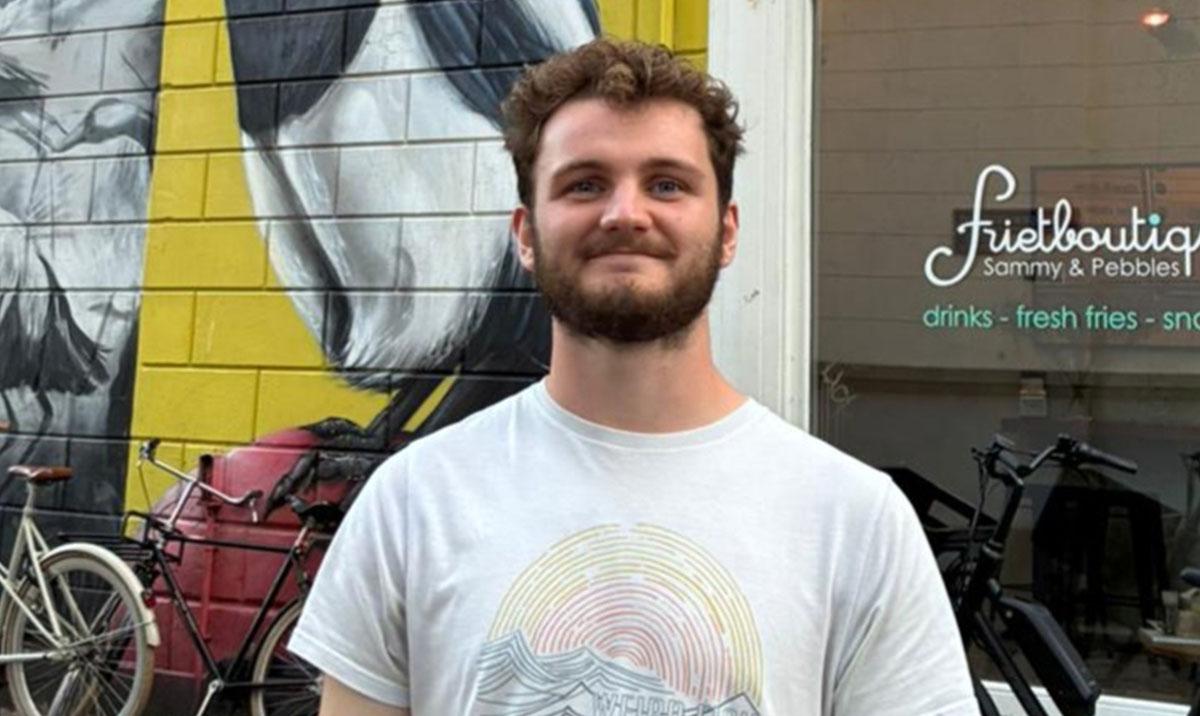
Sam Jackson
Supervisor: Joe O'Connor
Sam is investigating methods to accelerate tidal turbine modelling codes for multi-GPU architectures.
As we continue to improve our methods of harvesting renewable energy, tidal turbines arise as a method to provide a consistent and predictable source of renewable energy. Due to the expense of installing and operating these systems, we use computational fluid dynamics (CFD) to understand topics such as optimal organisation of turbine arrays and turbulence generated by tidal turbines. However, CFD simulations are complex and require significant computational resources, where some simulations can run for multiple weeks in certain scenarios.
High performance computing (HPC) provides an opportunity to run these CFD simulations efficiently, permitting more complex simulations, uncertainty quantification and sensitivity analysis. Unfortunately, existing codes for tidal turbine modelling that can leverage modern HPC systems, with multi-GPU architectures, are lacking in either multi-GPU support or appropriate numerical methods.
To have the greatest impact on the local community, we have reviewed existing literature and worked with domain experts to identify codes, such as TELEMAC-MASCARET or Thetis, or processes, such as mesh generation, that would strongly benefit from accelerated computation and accessibility on multi-GPU systems.
Currently we are looking at using directive-based offloading techniques as a low-code, low-maintenance approach to port existing codes, such as TELEMAC-3D, onto multi-GPU systems. In the coming years I hope to use more code-intensive approaches that can take greater advantage of multi-GPU systems, such as integrating a GPU-based Preconditioned Conjugate Gradient method using an API such as CUDA or ROCm. Furthermore, I aim to investigate methods for effectively lowering Finite Element code to multi-GPU systems within codes such as Firedrake, a Domain Specific Language (DSL). DSLs provide a separation of concern between domain experts and computational scientists, taking advantage of the strengths between experts within their respective fields.
Follow Sam's work
LinkedIn: https://www.linkedin.com/in/samuelscotlandjackson/
GitHub: https://samsjackson.github.io/
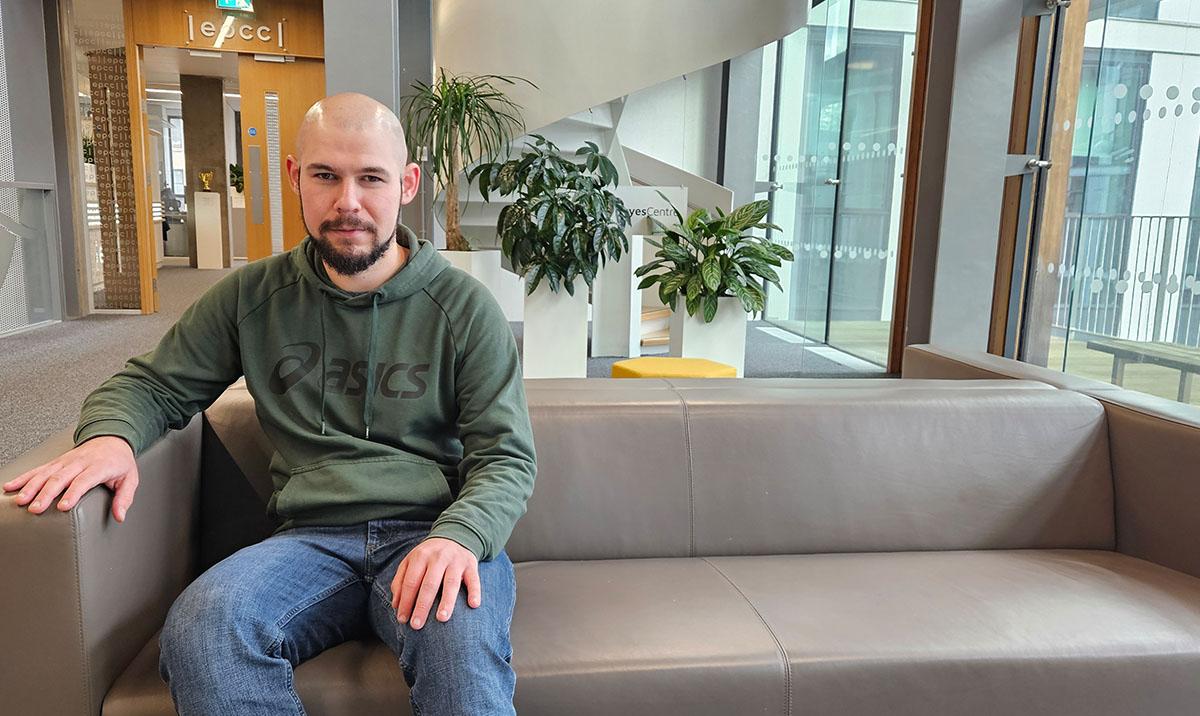
David Kacs
D.Kacs@sms.ed.ac.uk
Supervisor: Dr Nick Brown
David is working towards utilising cutting-edge compiler techniques to target novel architectures.
My research focusses on lowering the barrier to entry to programming the
Cerebras CS-2 by utilising modern, state-of-the-art compiler technology.
The Cerebras CS-2 is a co-processor originally designed to accelerate training
of machine learning models, however it has been shown to perform well in other
common HPC tasks like computational fluid dynamics. The system is programmed
using a bespoke programming language called CSL.
CSL has often proved to be challenging for first time and even experienced
users, as both its syntax and programming model are very different from common
HPC languages. In order to alleviate the steep learning curve, I am planning to
create a new compiler targeting the system. This compiler will apply
architecture specific optimisations, designed to accelerate HPC applications, to
regular code in a language like Fortran, which researchers are more familiar
with.
I am using Multi-Level Intermediate Representation (MLIR) to accomplish this.
MLIR is a component of the LLVM compiler framework which provides a mechanism
for combining different compiler passes and optimisations at different levels of
abstraction, allowing existing transformations to be combined with new ones
targeting the architecture, in theory, resulting in a very efficient executable.
Follow David's work
GitHub: https://github.com/dk949/
LinkedIn: https://www.linkedin.com/in/david-kacs-38a561226/ .
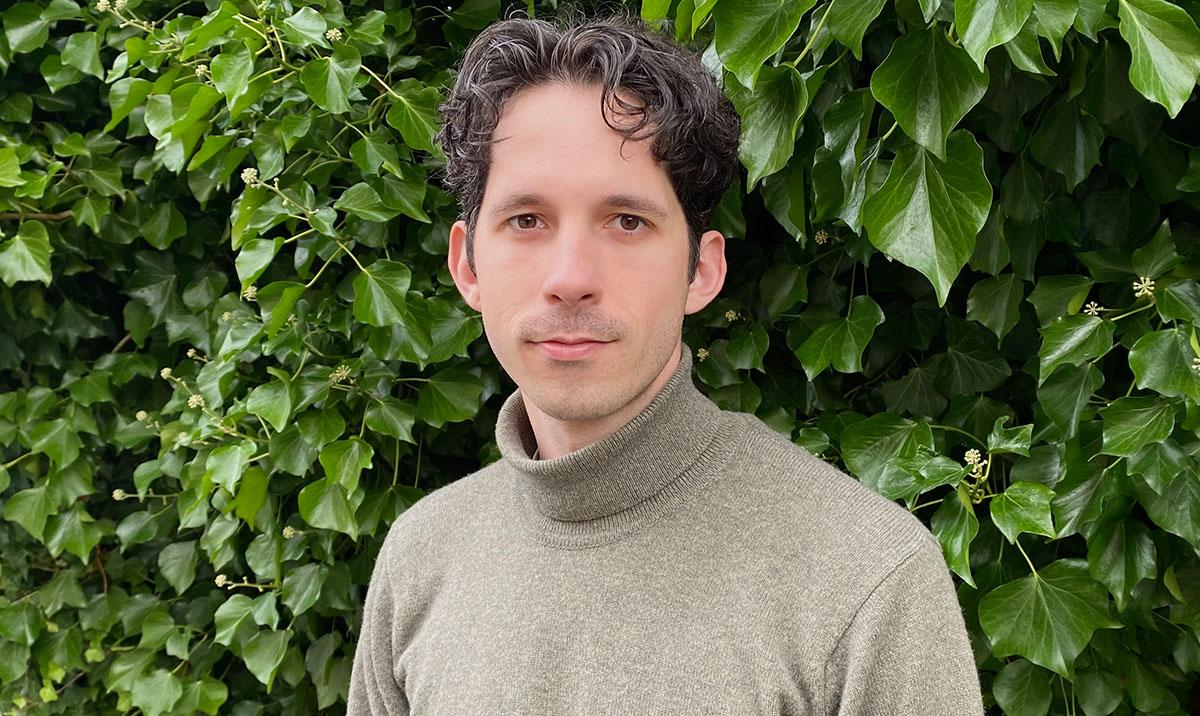
Mateusz Meller
Supervisor: Dr Oliver Brown
Mateusz is researching programming models for quantum computers. He is also a Computational Scientist at the Hartree Centre (STFC, UKRI), working on integrating quantum computing with classical scientific workflows.
Quantum computing can offer an advantage over classical systems in several scientific applications prevalent in HPC. However, integrating quantum systems with classical supercomputers faces many challenges that are common to heterogeneous computing. Moreover, programming quantum computers requires extensive domain knowledge and is challenging for programmers without a background in physics. Additionally, until recently, the classical performance of quantum computing software was somewhat neglected.
To fully leverage this emerging technology, it is crucial to develop programming abstractions and tools that make it easy to use.
While the dominant model of quantum computation is gate-based, it is low-level and has scalability issues. Instead, the main focus of my work is the programmability of analogue quantum simulators and quantum annealers. These machines, although more specialised, can be programmed at a higher level and provide faster time-to-solution.
As a first stage, I benchmarked and reviewed existing software for programming analogue quantum computers. My end goal is to develop a high-level domain-specific language embedded in C++, enabling hybrid quantum-classical application development while considering the performance constraints of the HPC and quantum systems.
As part of my work, I am using Multi-Level Intermediate Representation (MLIR) and LLVM infrastructure to develop optimisations at different levels of abstraction.
Follow Mateusz's work
Git Hub: https://github.com/matmeller
LinkedIn: https://www.linkedin.com/in/mateusz-m-198483166
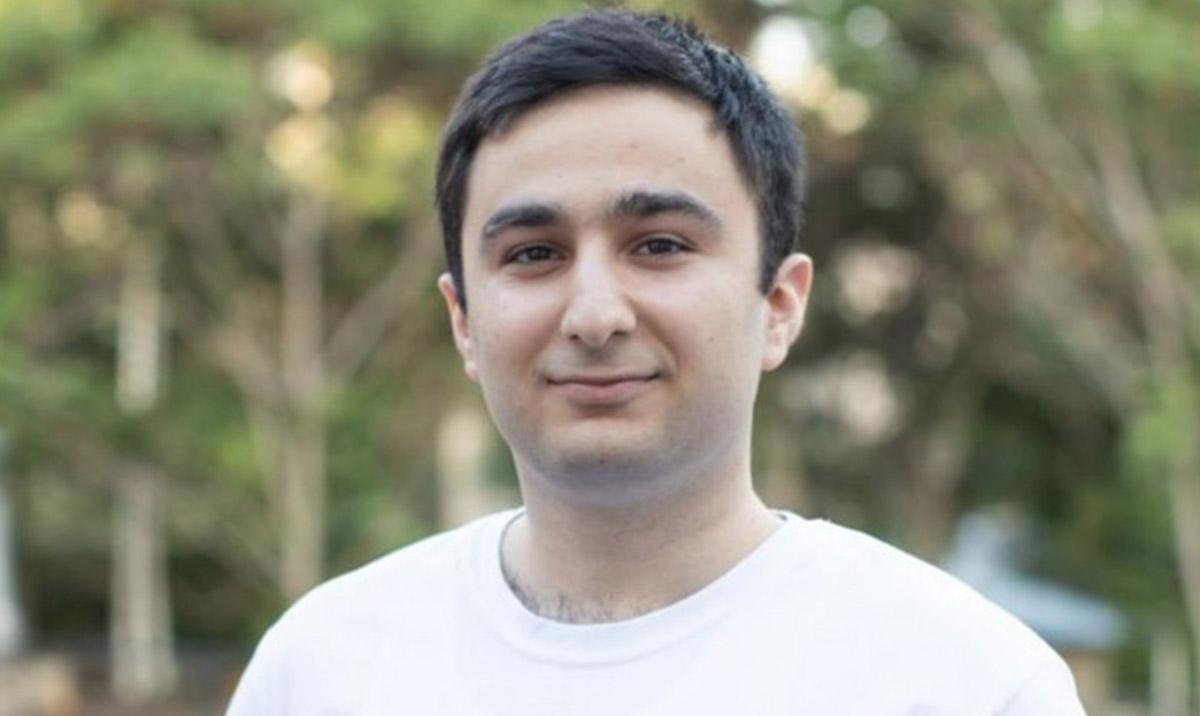
Hovhannes Minasyan
Supervisor: Michele Weiland
Hovhannes is investigating the changes in workloads on supercomputers through time to enable him to predict what future workloads will be like and to support the targeting of the needs of both current and future supercomputer users.
I began with combining data from various sources relating to supercomputers at EPCC to gain a complete picture of the state of the supercomputer and its workload at different times in the past and the present.
Currently, I am analysing the gathered data to find trends in different application usages, hardware resource requirements and power consumption. These trends help us to identify exactly how the HPC community will be using the supercomputers and what aspects of it might require optimisations.
At later stages of the project I will examine the effects of the overall workload and shared network resources on regular jobs. While calling it a "neighbourhood effect analysis", it also includes understanding how much jobs’ runtimes suffer based on node allocation and the intensity of the workload on neighbouring nodes. I will then explore whether the neighbourhood effect is significant, and, if so, what techniques can be used to minimise it.
Follow Hovhannes' work
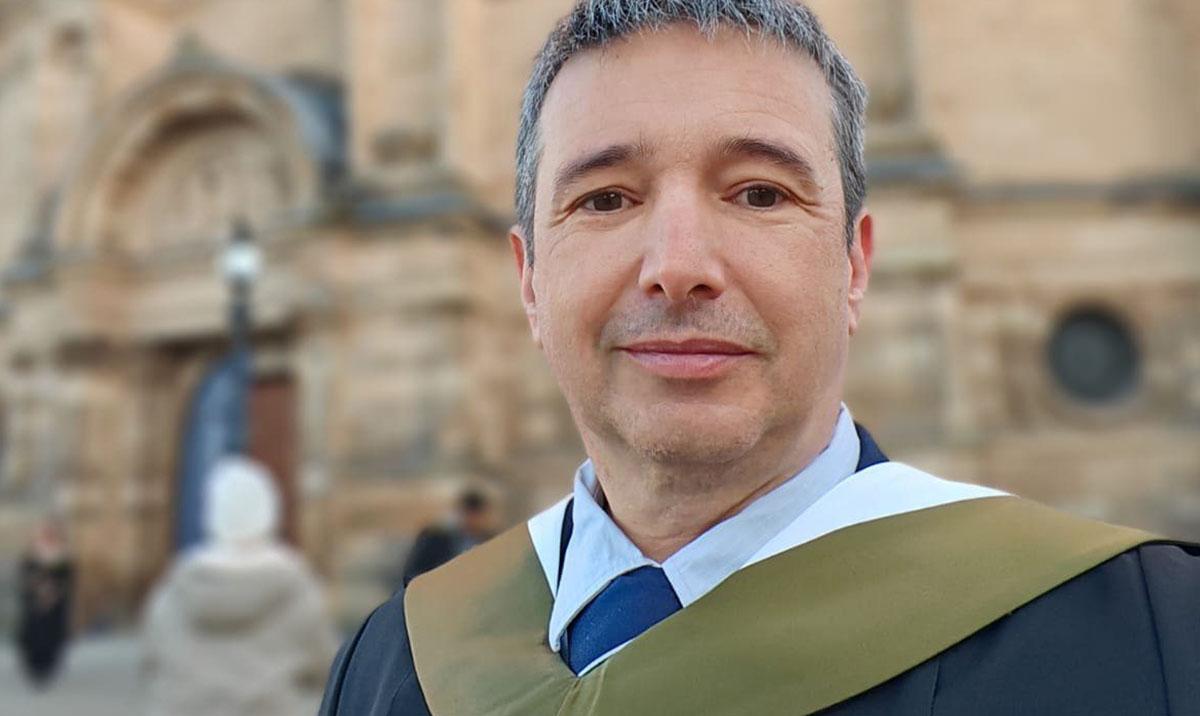
Rich Neale
Supervisor: Nick Brown
Having successfully completed an MSc in High Performance Computing at EPCC, Rich decided to continue on to PhD research focusing on the opportunities that RISC-V technology brings to HPC.
The RISC-V Instruction Set Architecture (ISA) is growing in popularity within modern computing ecosystems. RISC-V's open approach to CPU design not only results in technological design freedom but also provides a route to freedom from propriety hardware design control.
The open and extensible nature of the RISC-V ISA provides unique advantages for high performance computing (HPC), particularly in addressing the grand challenge of balancing performance, energy efficiency and programmability. Unlike proprietary architectures, RISC-V’s extensible ISA allows for domain-specific acceleration through extensions such as the Vector (V), Attached Matrix (AME), Integrated Matrix (IME), and Vector Matrix (VME) specifications.
The Integrated Matrix Extension (IME) is emerging as a promising standard that could enhance high-throughput scientific computation. The IME matrix tile operations work directly within the CPU pipeline, giving the potential for lowering the overhead when working with matrices.
The central hypothesis of this research is that emerging RISC-V Integrated Matrix Extension (IME) can provide a scalable, efficient and performant foundation for HPC workloads. New compiler and programming-model abstractions developed to expose and optimise matrix-centric execution in a portable and reproducible manner would provide a platform to evaluate these benefits.
EPCC plays a prominent role within the RISC-V community, provides a RISC-V testbed (one of the standards body certified ecosystem labs) with a variety of RISC-V systems and accelerators which are made available to aid development and research. These resources make EPCC the ideal place for carrying out this proposed research.
Follow Rich's work
Website: https://maths.earth/
GitHub: https://github.com/mathsDOTearth
LinkedIn: https://www.linkedin.com/in/rneale/

Sara Papa
Supervisor: Joe O’Connor
Sara Papa is developing geometric deep learning surrogates to accelerate particle-based CFD for real-time engineering applications.
Traditional CFD methods, such as Finite Volume and Finite Element, provide high accuracy but struggle with the computational load of violent free‑surface flows common in maritime and aerospace engineering, especially when complex boundaries are present. Smoothed Particle Hydrodynamics (SPH) offers a mesh-free Lagrangian alternative that naturally handles free‑surface dynamics. Yet the need to evaluate thousands of particle-particle interactions makes SPH computationally expensive and difficult to run in real time.
My research addresses these challenges by proposing a hybrid surrogate model for SPH leveraging Geometric Deep Learning (GDL) to reduce the computational cost. It integrates Graph Neural Networks (GNNs) to efficiently represent particle interactions through an adaptive graph-based structure, Physics-Informed Neural Networks (PINNs) to embed fundamental conservation laws (mass, momentum, energy) into the training process for physically consistent results, and Uncertainty Quantification (UQ) to improve robustness and reliability by estimating model confidence, supporting safer use in engineering design and decision making.
The data-driven surrogate will be tightly coupled with traditional SPH solvers, supplying rapid approximations while the solver corrects drift and enforces stability. High performance computing (HPC) is a critical component of this work. By leveraging EPCC’s supercomputing infrastructure, I will benchmark and evaluate the proposed model against classical SPH solvers using real-world fluid dynamics problems.
With the integration of machine learning, preliminary estimates suggest potential up to 1000× efficiency gains in large-scale or high-dimensional scenarios, enabling much faster simulations compared to traditional SPH solvers. The suggested method has the potential to transform companies that depend on fluid dynamics simulations by reducing computational cost while providing more effective answers to challenging engineering problems.
Follow Sara's work
LinkedIn: https://www.linkedin.com/in/sara-papa-b50a73222/
GitHub: https://github.com/Sarapapa99

Xingran Ruan
PhD Supervisor: Dr Charaka Palansuriya, EPCC, and Dr Aurora Constantin, School of Informatics
Xingran's research centres on developing educational software that integrates advanced deep learning techniques with immersive gaming technologies.
I am creating an automated system designed to facilitate self-reflection in serious games by analysing human behaviours. This work includes a large-scale study involving school pupils to compile the Affect2Metacognition video dataset. This dataset is used to train and evaluate multimodal deep-learning networks aimed at assessing self-reflection performance.
I have also devised a strategy that employs facial expressions and body gestures to support self-reflection, aimed at improving learning outcomes without imposing additional cognitive load. A long-term objective of my research is to assess the effects of these real-time scaffolds on pupil learning achievements.
Throughout my academic career, I have undertaken significant research projects, including optimising load balancing within parallel threads during my MPhil at the University of Manchester and investigating the Feynman-Kac formula during my MSc at the University of Edinburgh.
As a Research Assistant, I enhanced data management and analysis capabilities for the Scottish Collaborative Optometry-Ophthalmology Network (SCONe) by developing a streaming data pipeline and implementing a data visualisation workflow, which significantly improved data accessibility and insight generation for research projects.
My publications, which focus on human-computer interaction technology and cognitive science, include innovative methods for identifying and supporting children's metacognitive skills through facial expressions and intelligent tutor systems. My work has been featured at various international conferences, showcasing my contributions to educational technology and cognitive science.
In industry, I have held roles that utilised high performance computing environments and real-time data management, notably at eMoodie where I developed mental health monitoring models.
Follow Xingran's work

Chao Tang
Supervisors: Adrian Jackson, and Yves Wiaux.
Chao is a third-year PhD student focusing on extreme-scale computational imaging for radio astronomy.
My research focuses on the intersection of astronomical imaging and high-performance computing. This involves designing algorithms to reconstruct high-precision images from the extensive measurements collected by modern radio telescopes, as well as deploying these algorithms on high-performance computing systems. Prior to my PhD study, I obtained my master’s degree in signal and image processing from the University of California, San Diego.
Aperture synthesis via interferometry in radio astronomy is a crucial technique that allows us to observe the sky with antenna arrays at high angular resolution and sensitivity. The raw measurements of a radio telescope provide incomplete linear information about the sky in the spatial Fourier domain. Extracting images from this data enables us to achieve various scientific goals, including studying cosmic magnetism, dark matter, dark energy, and understanding the structure and evolution of stars and galaxies. However, due to the sub-Nyquist sampling strategy, the reconstruction process poses a highly ill-posed Fourier inverse problem, necessitating powerful computational imaging algorithms to incorporate proper prior information.
Next-generation radio telescopes, exemplified by the Square Kilometre Array, feature increasingly large data volumes reaching exabytes in scale. This allows them to resolve complex structures with higher resolution and dynamic range, posing unprecedented requirements for the joint scalability and precision of imaging algorithms.
The CLEAN algorithm, first proposed by Högbom in 1974, and its variations are widely used in astronomical imaging due to their simplicity. However, CLEAN-based algorithms require manual fine-tuning, and the resolution of the recovered images is limited by the point spread function of the telescope system. Building on compressive sensing theory, advanced convex optimisation algorithms have proven superior in image quality. In this versatile framework, the reconstructed image minimises an objective function composed of a data-fidelity term ensuring physical correctness, and a regularization term promoting prior models. Solutions can be found through iterative proximity splitting algorithms, such as forward-backward, primal-dual, ADMM, etc.
With advancements in data decomposition and 3D image cube faceting techniques, block optimisation algorithms like Faceted-HyperSARA can be further parallelised. However, they may still face challenges due to computational complexity arising from sophisticated image priors and potential sub-optimality of handcrafted priors. Therefore, replacing the sophisticated proximity operator with data-driven deep neural networks offers appealing alternatives known as Plug-and-Play (PnP) algorithms.
Leveraging the advantages of maximally monotone operator theory, we have proposed a PnP algorithm with convergence guarantee, namely AIRI. We have validated the image quality of AIRI and its variations using real measurements from the MeerKat telescope, demonstrating the robustness of our algorithms. In the near future, we will explore other physically informed deep learning frameworks to handle even higher-dimensional, larger-scale astronomical imaging tasks. Additionally, we will extend our algorithms to tackle problems in other imaging modalities, such as high-dimensional magnetic resonance imaging.
Follow Chao's work
GitHub: https://github.com/ChaoTang0330
LinkedIn: www.linkedin.com/in/chaotang

Weiyu Tu
W.Tu-3@sms.ed.ac.uk
Supervisor: Dr Mark Bull
After completing her Master's in High Performance Computing at EPCC, Weiyu Tu's current research is focusing on the microbenchmarking of accelerator offloading.
My research involves understanding the fundamentals and identifying key areas for improvement in GPU benchmarking methodologies, primarily focusing on kernel launch overheads and computational task assessments. I aim to develop a cross-API benchmark suite for equitable HPC performance evaluations and explore the effects of unified CPU/GPU memory architectures on performance.
I am dedicated to laying a solid foundation for my research while exploring the intricacies of high performance computing environments. My goal is to contribute to developing more accurate and reliable benchmarking processes in my field.
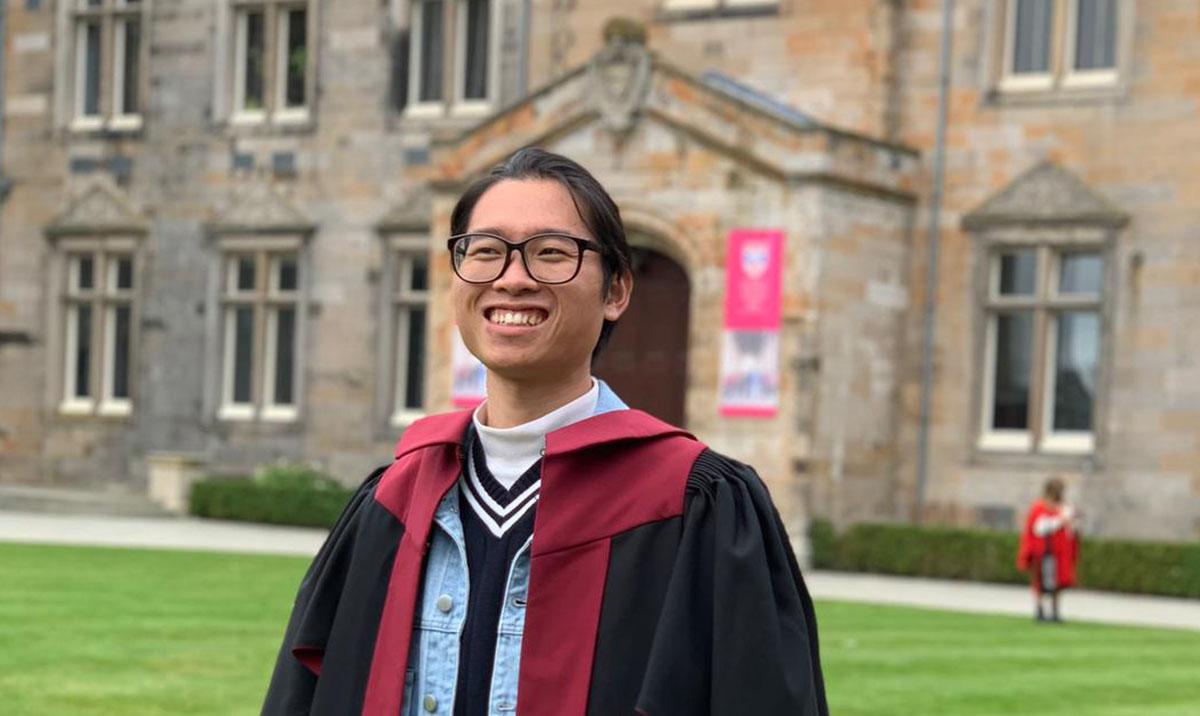
Lilin Yu
L.Yu-40@sms.ed.ac.uk
Supervisor: Rosa Filgueira
Lilin is a second-year PhD student exploring advanced semantic technologies and NLP for analysing large-scale historical textual collections in parallel.
My research aims to transform the analysis of large-scale digitised historical collections from the 18th and 19th Centuries, leveraging innovative digital solutions to enhance their accessibility and exploration.
This research, drawing on collections from the National Library of Scotland (NLS) and the British Library (BL), focuses on five key objectives:
Novel ontology development. Creating a novel ontology to accurately represent historical collections, enabling tracking and linking of document versions from diverse sources, including varied OCR scans and cleanings, for seamless navigation.
Innovative NLP algorithms. Advancing NLP algorithms for text cleaning and error correction to address OCR inaccuracies, with new methods for linking sources and connecting concepts across time, employing clustering, embeddings, semantic similarity and topic modelling, as well as for assessing the quality from diverse sources.
Automated knowledge graph construction. Using the new ontology to automate the creation of knowledge graphs that encapsulate data across different years, sources, and text qualities, offering a holistic view of document evolution.
High performance computing platform. Developing a novel web platform for data ingestion and knowledge extraction, supporting advanced large-scale text mining in parallel, semantic analyses, and innovative visualisations to facilitate complex examinations of historical collections.
Collaborative repository of workflows. Creating a repository for semantic analysis workflows to foster co-development with the expert communities (historians, social scientists, linguistics) and interdisciplinary collaboration, enhancing methodologies and tools.
This integrated approach is designed to significantly contribute to computer science and digital humanities, balancing computational efficiency with analytical depth to improve the understanding and accessibility of historical documents.
Follow Lilin's work
Github: https://github.com/DamonYu97
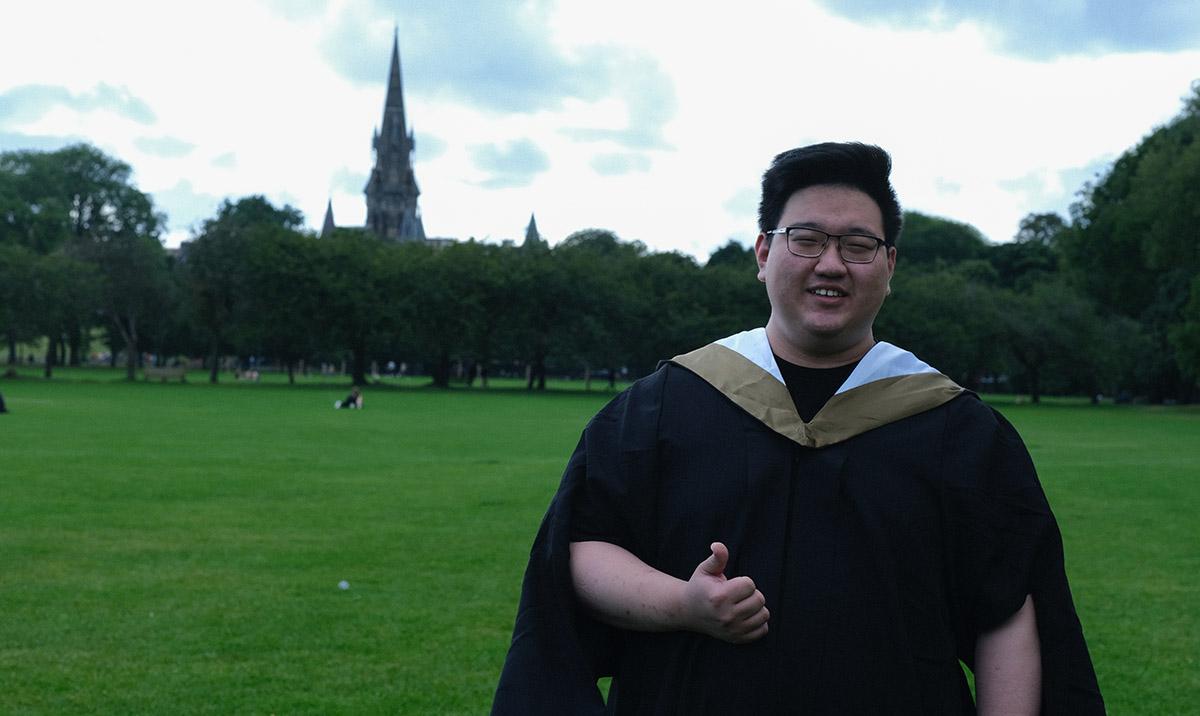
Kejia Zhang
Supervisor: Dr Charaka Palansuriya and Dr Aurora Constantin, School of Informatics
Kejia is a PhD student at EPCC, University of Edinburgh, where he began his studies in 2025. His research focuses on leveraging generative AI to develop Intelligent Tutoring Systems.
Before pursuing my PhD, I completed a BSc in Computer Science at the University of Bristol and MSc in High Performance Computing with Data Science at EPCC.
Generative AI has transformed how we create and interact with content, offering tools that can dynamically produce text, images, and other media. My research will explore how this transformative technology can be applied to develop Intelligent Tutoring Systems (ITS), which are adaptive learning platforms that emulate human teachers by providing personalised feedback and content tailored to individual learners' needs.
Traditional ITS often rely on predefined content and instruction database, which limit their ability to adapt to the unique preferences and learning styles of each student. Generative AI addresses this limitation by enabling the real-time creation of customised educational content. For example, children can actively participate in shaping their learning journey, choosing topics of interest and learning methods, while the system generates tailored educational material to match their needs.
However, the widespread reliance on closed-source generative AI tools, such as ChatGPT and DALL-E, introduces challenges like data privacy risks and dependence on third-party services. To overcome these issues, my research will also focus on utilising open source generative AI models (eg Stable Diffusion and LLaMA) that could be operated locally on personal devices (eg phone, PC and tablet). This approach ensures privacy, security, and uninterrupted access, which makes these systems more child-friendly and accessible to children.
By integrating generative AI into ITS, my research aims to create adaptive educational systems that can dynamically adjust teaching strategies and content in response to real-time feedback.
Follow Kejia's work
GitHub: https://github.com/Kejia928
LinkedIn: https://www.linkedin.com/in/kejia-zhang-80b967295/
